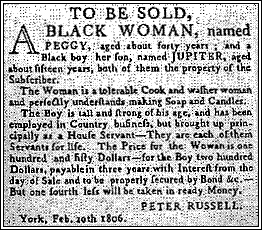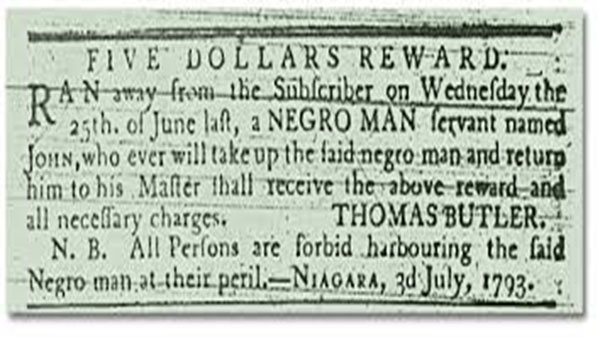By Mark Brown
PRIDE Guest Columnist
 Chinese head tax, Indigenous residential schools, South Asian Komagata Maru incident.
Chinese head tax, Indigenous residential schools, South Asian Komagata Maru incident.
These are some of the apologies given by current and previous federal governments for historical injustices done to Canadians because of their race, colour, creed and/or religion — atrocities committed during a dark period of Canadian history.
A period when blatant discriminatory practices and policies were written into law and justified as appropriate.
The Chinese head tax was first imposed after the Canadian parliament passed the Chinese Immigration Act in 1885. This tax was meant to discourage Chinese people from immigrating to Canada after the completion of the Canadian Pacific Railway, which they built.
The first anti-Chinese tax of $50 per person was levied on almost every Chinese person entering Canada. Despite the tax, Chinese immigrants continued to come to Canada. As a result, the tax was increased to $100 in 1900 and $500 in 1903. At that time in history $500 represented two years wages for Chinese labourers.
Indigenous residential schools were government-sponsored religious schools, established to integrate Indigenous children into European-Canadian culture.
It is reported that many children were forcibly taken from their homes and put into these residential schools against their will. It is further reported that this subsequently disrupted the lives and the communities of Canada’s Indigenous population, causing long-term problems that continue to this day.
The last residential school closed in 1996. It is believed that 150,000 Indigenous, Inuit, and Métis children attended residential schools.
Former students have strived for recognition and restitution, which resulted in the Indian Residential Schools Settlement Agreement in 2007 and a formal public apology by then Prime Minister, Stephen Harper, in 2008.
The SS Komagata Maru was a chartered ship which brought immigrants, many of whom were of the Sikh religion, to Canada from India. Canada had a policy of excluding immigrants from India.
A showdown took place in the spring and summer of 1914 when a boatload of immigrants arrived in Vancouver. This became a tragic experience for the passengers.
First there was an unsuccessful physical confrontation with police and the military at the Port of Vancouver. This was followed by a deadly encounter with police and troops near Kolkata on the passengers’ return trip to India.
Each of these incidents, along with others not mentioned above, are all worthy of the apology they received.
Many would agree that a boatload of Sikhs being turned away from Canada, purely because of race and religious difference, is not the best example of inclusion that Canada is argumentatively known for.
However many more would argue that none of these atrocities can compare to what African Canadians experienced as a result of Canada’s role in the Trans-Atlantic slave trade.
From the 15th to the 19th century, millions of Africans were taken, against their will, chained in the belly of thousands upon thousands of ships, forcibly removed from their homeland and brought to Canada, among other countries.
Many did not survive the journey and their bodies were simply thrown overboard. For those who survived the journey to Canada and other countries, generations of atrocities followed.
 The Africans were sold into slavery and became the property of the purchaser. They were recognized as cattle under the law. Their bodies to be used and abused as the purchaser saw fit.
The Africans were sold into slavery and became the property of the purchaser. They were recognized as cattle under the law. Their bodies to be used and abused as the purchaser saw fit.
What many today would call physical and sexual abuse, the African called Wednesday. Their children also were the property of the purchaser and were often sold to other slave owners and never seen by their parents again.
Yet for the African Canadian, there appears to be no apology from the federal government on the horizon.
Slavery was abolished in Canada in 1833 however, African Canadians continued to face years of segregation. Businesses and organisations could refuse to provide services to African Canadians as they saw fit. Yet for the African Canadian, there appears to be no apology on the horizon.
Segregation was abolished in Canada in the 1950’s nevertheless, African Canadians continue, to this day, to struggle with anti-black racism, which many see as a residual effect of Canada’s role in the Trans-Atlantic slave trade.
Yet for the African Canadian, there appears to be no apology on the horizon.
Racial profiling, mass incarceration and over-representation within children’s aid societies continue to be seen, by many, as a domino effect of Canada’s role in the slave trade.
Yet for the African Canadian, there appears to be no apology on the horizon.
Apologies to Canadians such as this are not limited to the federal government. Recently the Metro Toronto Police Chief, Mark Saunders, apologised to the LGBTQ+ community for raids on gay bathhouses, which took place in Toronto in 1981.
The apology was made at a yearly Pride reception at the Toronto police headquarters on College Street. Chief Saunders is quoted as describing the raids as “one of the largest mass arrests in Canadian history.”
The Metro Toronto police force, along with other police forces, have been under fire for supporting carding. Carding is the police practice of stopping people (disproportionately Black males) and recording their information, even though they may not be suspected of committing a crime.
This leaves the individual “known to police”, which can subsequently negatively affect the individual’s current and future employment.
It is believed, by many, that this extra scrutiny on both Black and Indigenous peoples have contributed to the problems of mass incarceration and higher unemployment within the Black and Indigenous populations. After years of public outcry the carding policy was subsequently changed.
Yet for the African Canadian, there appears to be no apology on the horizon.
Is the disinclination to apologise for Canada’s role in the Trans-Atlantic slave trade and the residual effects of the slave trade, approval by inaction, justification by complacency?
Is this another way of saying that black lives don’t really matter?
I don’t have an answer for that, but what I am confident in, is that the reluctance of our elected officials to appropriately address the issues that negatively affect Canada’s Black community is the same justification as to why the BLACK VOTE MATTERS.
Mark Brown is the Chair of the Toronto and York Region Labour Council’s Equity Committee, a member of the Coalition of Black Trade Unionist (CBTU), An Executive Board Member of the Labour Education Center and a member of the Toronto Local of the Canadian Union of Postal Workers. To contact Mark: www.facebook.com/profile.php?id=100000658149978; Twitter MarkAAABrown
 Pride News Canada's Leader In African Canadian & Caribbean News, Views & Lifestyle
Pride News Canada's Leader In African Canadian & Caribbean News, Views & Lifestyle






Let’s see when they will address this since our government is addressing and apologizing to every race and creed @Blacklivesmatter